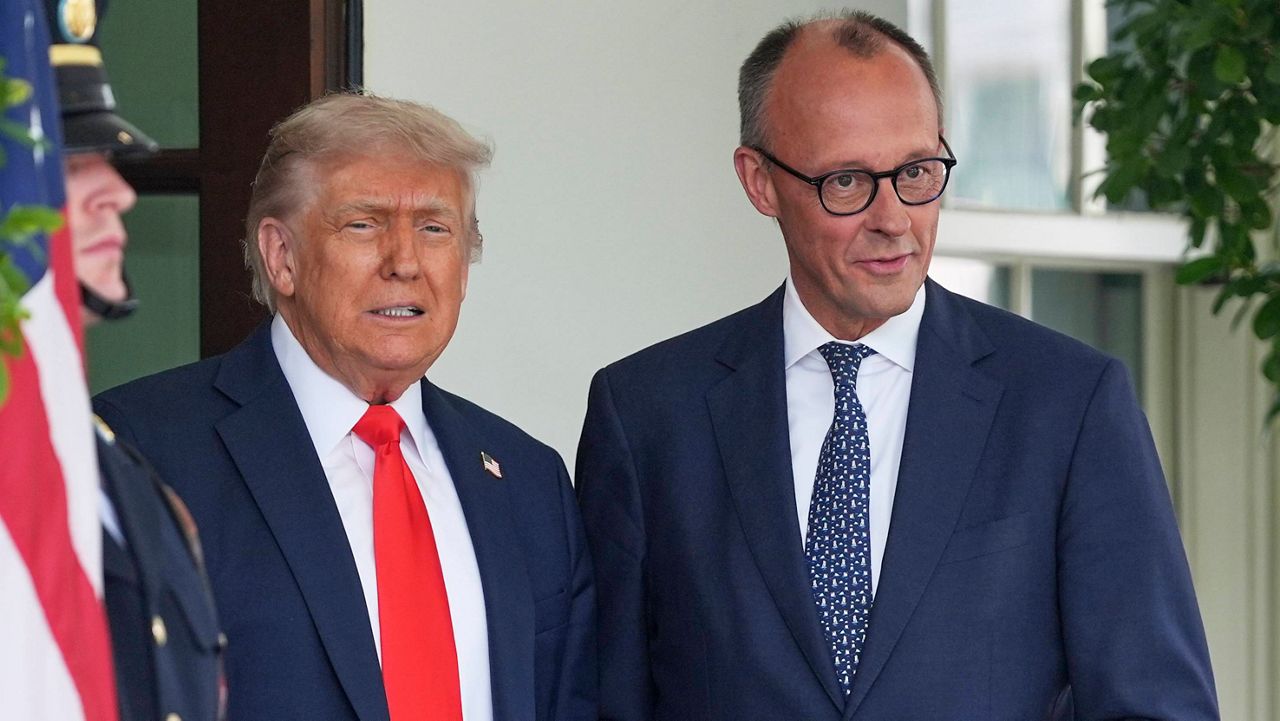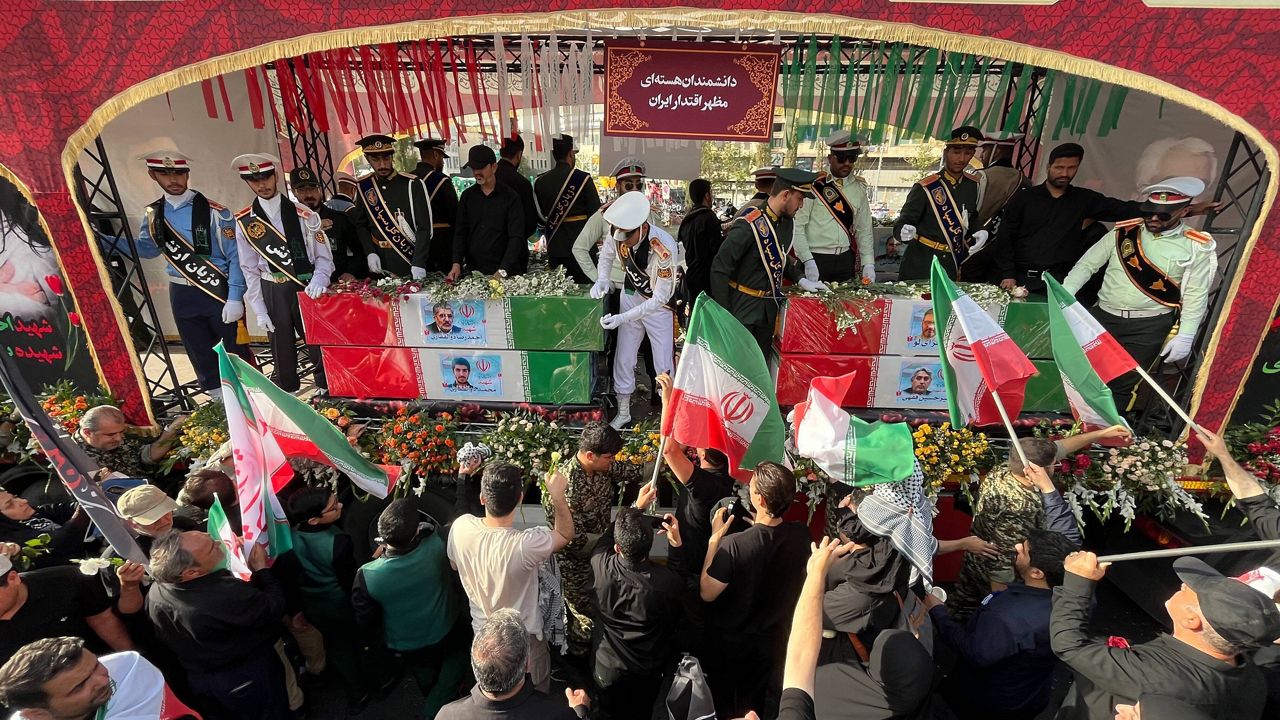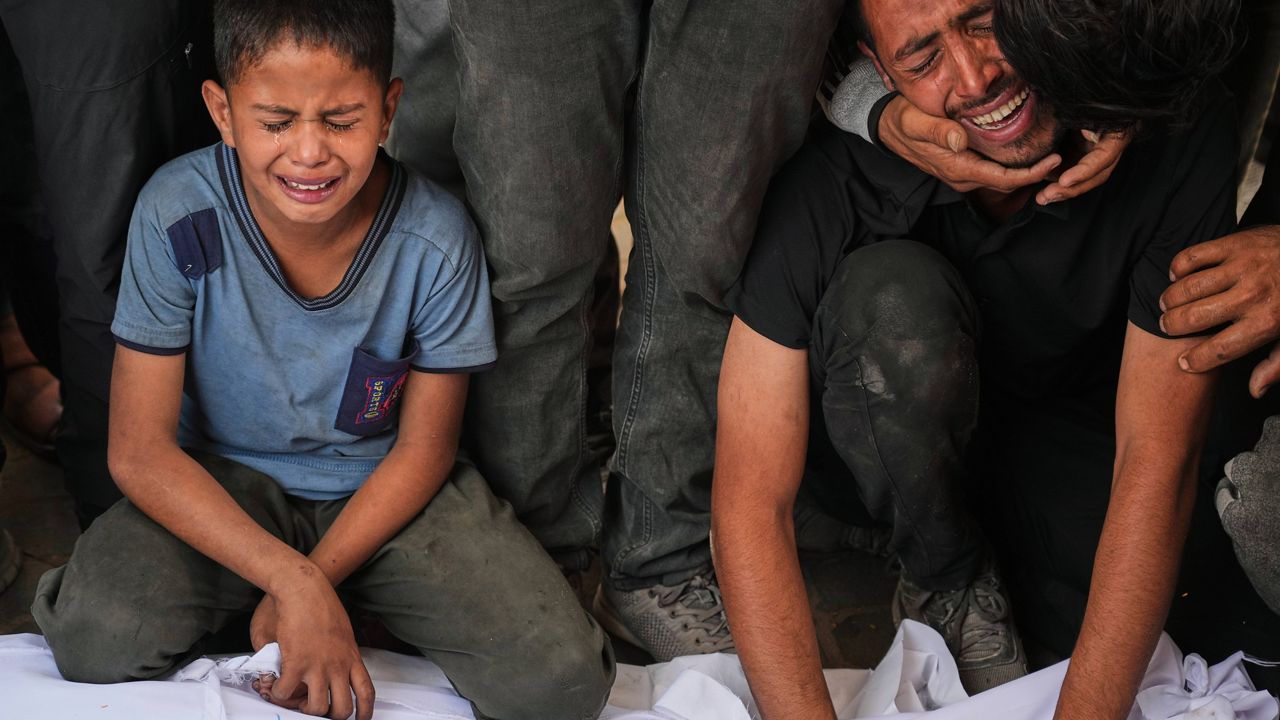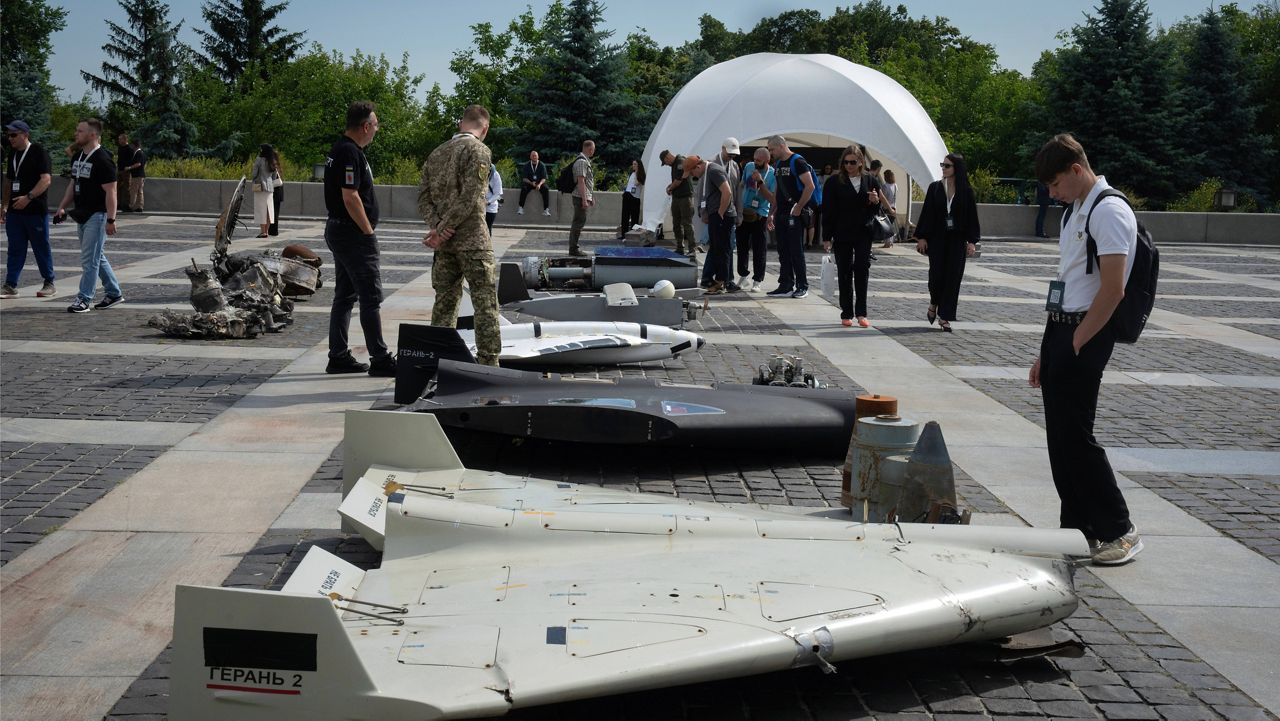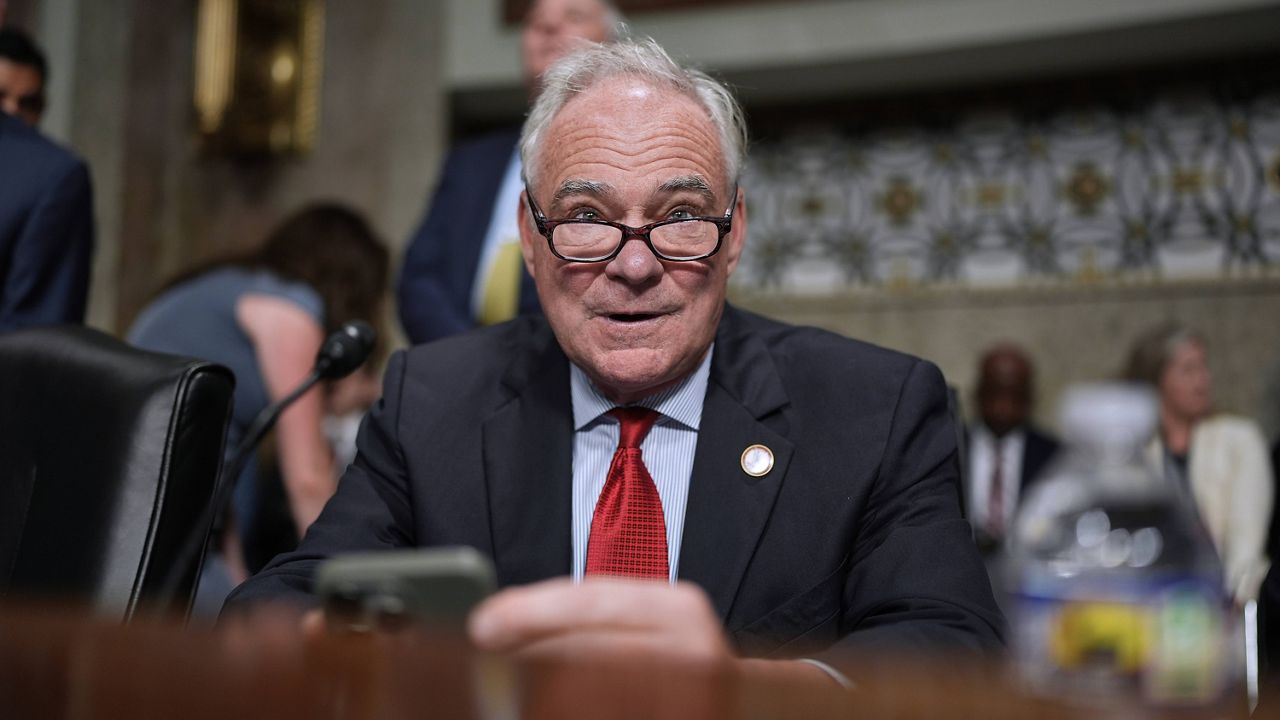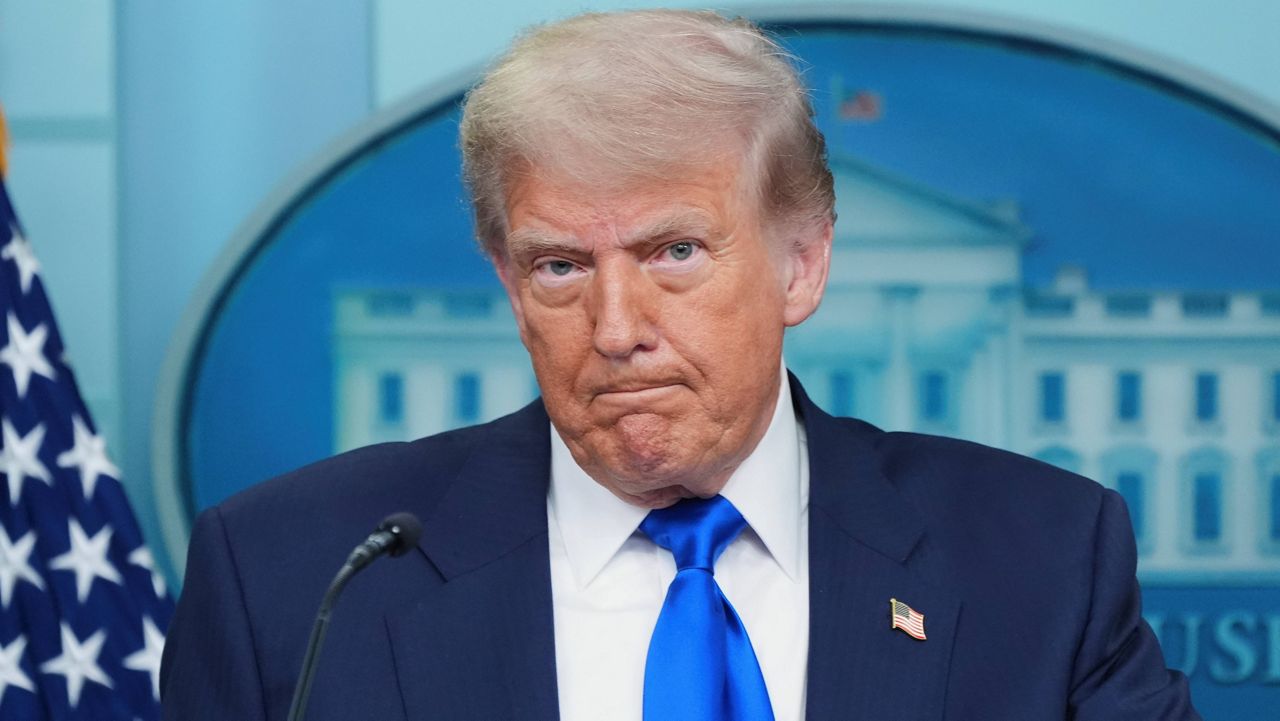WASHINGTON — President Donald Trump gave no indication that Russia and Ukraine were any closer to notching a deal to end the war while sitting down with Germany’s new leader — a key backer of Kyiv — in the Oval Office on Thursday.
The visit from Chancellor Friedrich Merz, in which the war in Ukraine, along with tariffs and trade, was set to be top ofmind, took place just a day after Trump held a more than one-hour-long phone call with Russian President Vladimir Putin.
Addressing questions from reporters at the top of the meeting with Merz, Trump suggested it may be best at such a point in his efforts to bring peace in the region to allow Russia and Ukraine “fight for a while.” He compared the nations to two fighting children or hockey players who you have to let “go for a couple of seconds.”
While campaigning last year, Trump claimed he could end the war by his first day back in the White House.
“Sometimes you see two young children fighting like crazy," he said Thursday. "They hate each other, and they’re fighting in a park, and you try and pull them apart. They don’t want to be pulled. Sometimes you’re better off letting them fight for a while and then pulling them apart.”
The president said he used such an analogy on his phone call with the Russian leader Wednesday. Trump also said that he told Putin on the call not to respond to Ukraine’s massive and surprise drone attack deep inside Russia over the weekend, something the U.S. president said in his readout of the conversation that Putin told him he was going to do.
Trump, recounting the call, went on to note Putin was resolute, with the U.S. leader warning it is “probably not going to be pretty.”
Asked about imposing more sanctions on Russia, an idea Trump has brought up in the past but has not publicly appeared to move any closer to doing as his administration officials say they don’t want to hinder talks about peace, the president said he has a deadline “in my brain” of when it would be time to use them.
“When I see the moment where it’s not gonna stop … we’ll be very, very, very tough,” he said, adding, however, that the same thing could apply to Ukraine as well.
“And it could be on both countries, to be honest,” Trump said. “You know, it takes two to tango.”
More than 80 of the Senate's 100 members have signed on to support a bipartisan bill, led by Trump ally Sen. Lindsey Graham, R-S.C., and Sen. Richard Blumenthal, D-Conn., that would place new primary and secondary sanctions on Russia and those aiding its war effort. GOP leaders in the upper chamber have indicated that they are waiting for Trump to give the green light to move ahead with voting on the legislation, which has more than enough support as it stands now to pass.
“At the right time, I’ll do what I want to do,” Trump said in the Oval Office.
Merz, who came to Washington hoping to keep the U.S. on board with Western support for Ukraine, called for pressure on Russia.
Noting that they both want the war to stop, Marz said he told Trump “he is the key person in the world who can really do that now by putting pressure on Russia.”
Under Merz's immediate predecessor, Olaf Scholz, Germany became the second-biggest supplier of military aid to Ukraine after the United States. Merz has vowed to keep up the support and last week pledged to help Ukraine develop its own long-range missile systems that would be free of any range limits.
Meanwhile, on tariffs and trade, Trump said the U.S. will “hopefully” make a deal with the European Union, which includes Germany.
“I guess that will be mostly determined by the European Union, but you’re a very big part of that, so you’ll be involved,” Trump told Merz.
Trump threatened a 50% tariff on goods from the European Union last month before delaying their start until July 9 to allow for negotiations at the request of European Commission President Ursula von der Leyen.
Trump on Thursday said the two will either have a deal or the U.S. will impose tariffs. The president's ultimatum comes, however, amid a large degree of uncertainty surrounding his ability to impose such fees after a series of court rulings last month, although he is allowed to continue enforcing them for now.
Germany exported $160 billion worth of goods to the U.S. last year, according to the U.S. Census Bureau. That was about $85 billion more than what the U.S. sent to Germany, a trade deficit that Trump wants to erase.
The U.S. president has specifically gone after the German auto sector, which includes major brands such as Audi, BMW, Mercedes Benz, Porsche and Volkswagen. Americans bought $36 billion worth of cars, trucks and auto parts from Germany last year, while the Germans purchased $10.2 billion worth of vehicles and parts from the U.S.
Ahead of the meeting, Merz spokesperson Stefan Kornelius said on Monday that the chancellor is "well-prepared" for the meeting and that he and Trump have "built up a decent relationship, at least by phone" and via text messaging.
Marz presented Trump in the Oval Office with a framed copy of the birth certificate of Trump’s grandfather, who immigrated to America from Germany.
Trump referred to his German counterpart as a “great representative” of Germany while going on to say he was “difficult” but suggesting he meant it in a good way.
“You wouldn’t want me to say that you’re easy,” he said.
The Associated Press contributed to this report.




